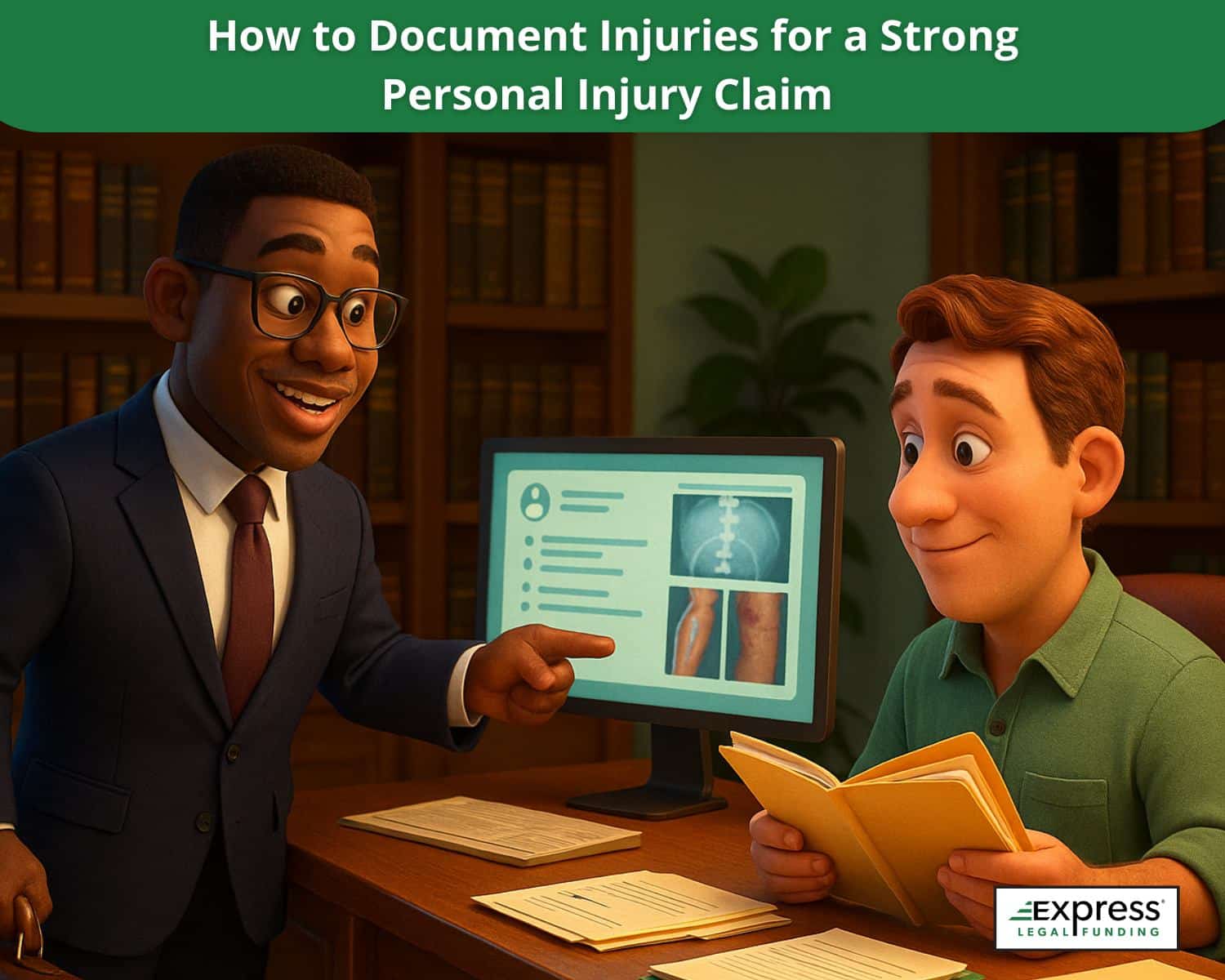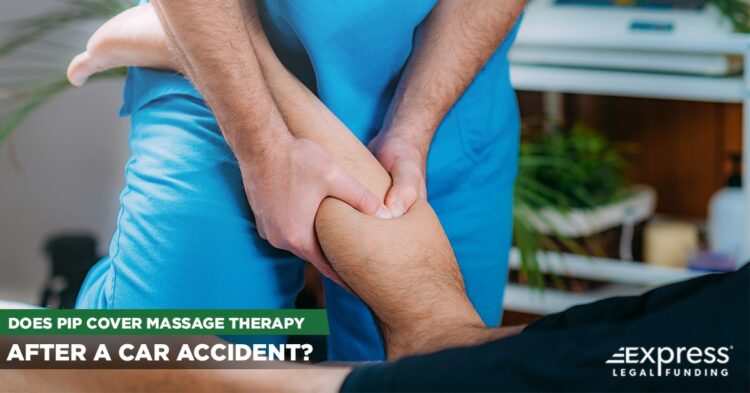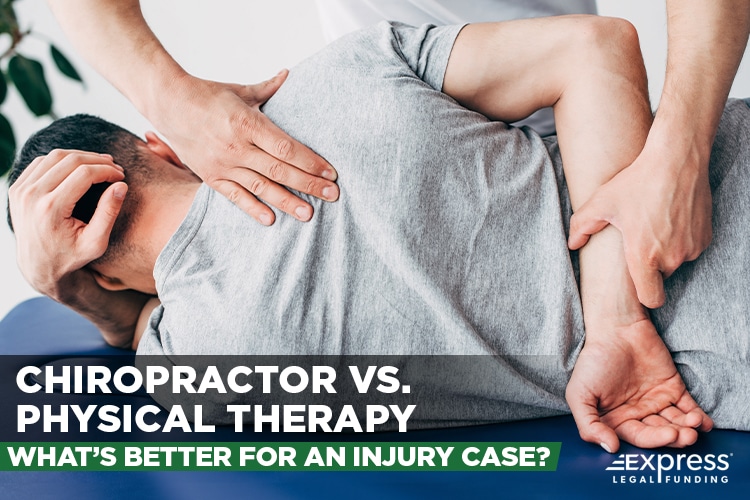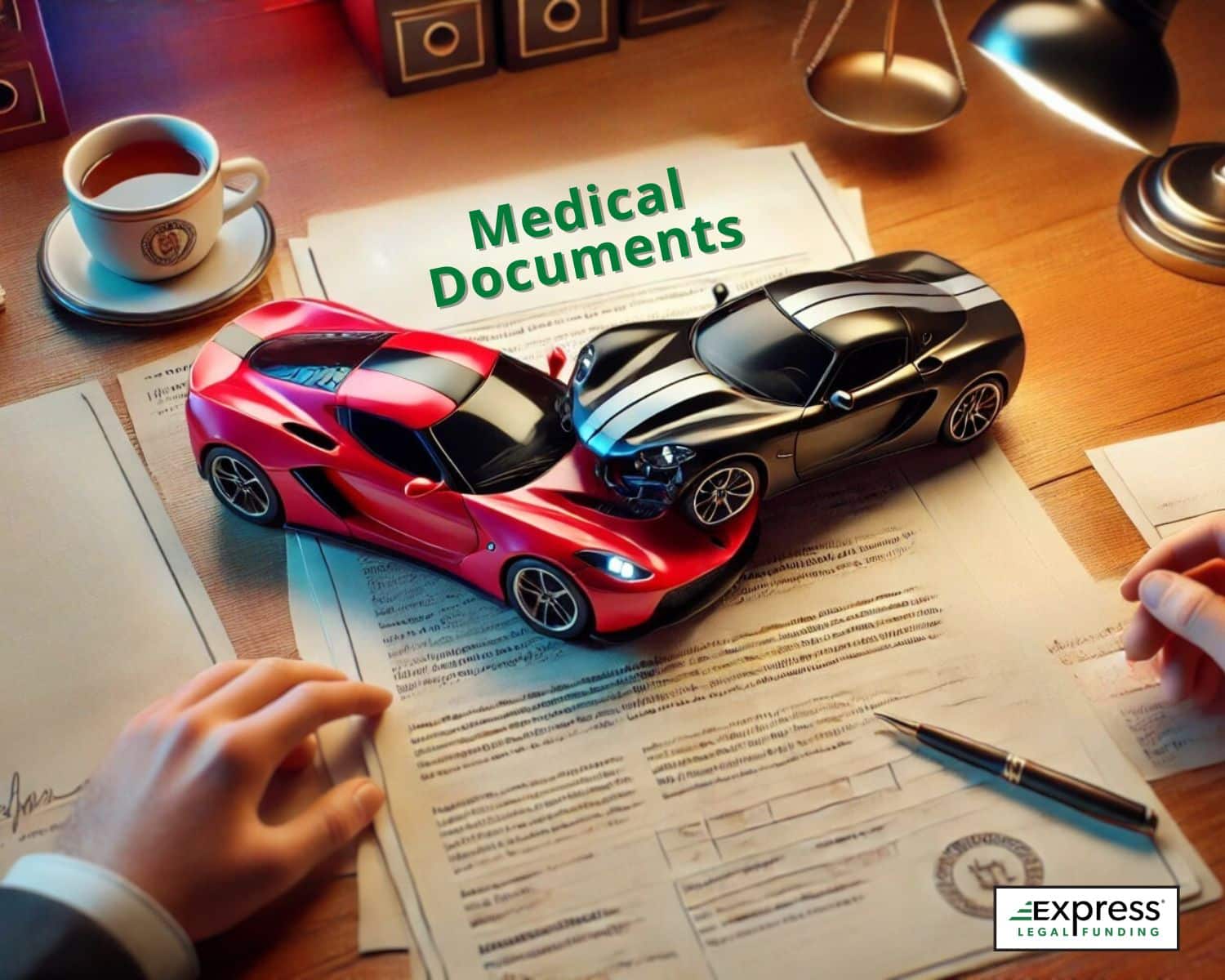
If you’ve been injured in a car accident, your medical records play a critical role in determining your settlement amount.
Why Medical Records Are Crucial for Car Accident Settlements
Having proper medical documentation can mean the difference between a lowball offer and the full compensation you deserve.
How Medical Records Impact Car Accident Injury Claims
📄🩺 Medical records serve as the foundation of a car accident claim, offering indisputable proof of injuries, treatment, and recovery progress. Without them, insurance companies may argue that injuries are minor, pre-existing, or unrelated to the accident.

In legal contexts, medical records serve as key evidence, establishing a direct link between the accident and your injuries, substantiating medical expenses, and highlighting long-term effects.
These records help counter insurance disputes during settlement negotiations, while in court trials, they serve as objective evidence that judges and juries rely on to assess damages, support expert testimony, and determine fair compensation.
Here are five key ways medical records directly impact your car accident settlement:
Key Ways Medical Records Strengthen Car Accident Claims (Infographic List):
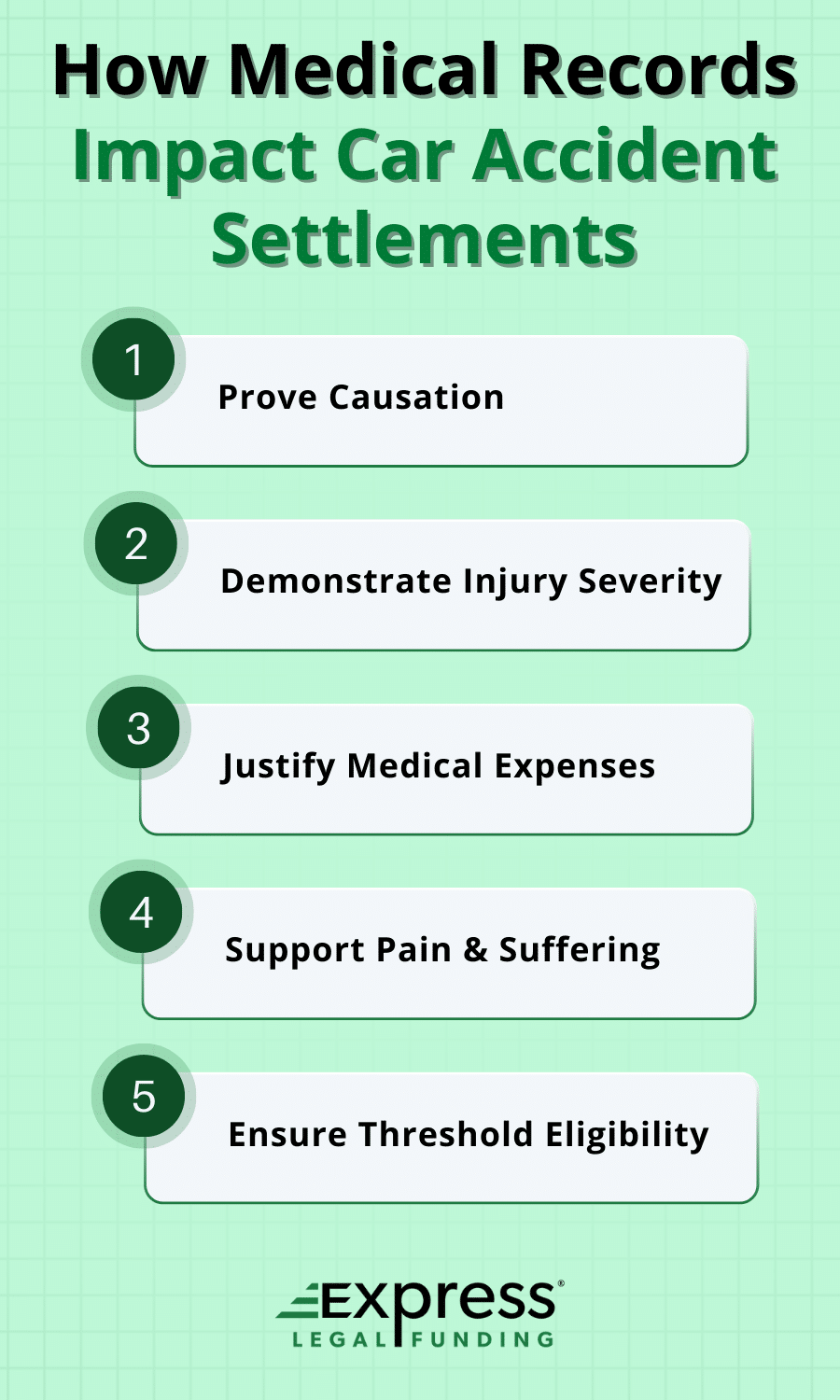
- Prove Causation: Medical documentation links injuries directly to the accident, countering insurance arguments that injuries were pre-existing or unrelated.
- Demonstrate Injury Severity: ER reports, diagnostic imaging (X-rays, MRIs, CT scans), and physician evaluations provide objective proof of the extent of injuries.
- Justify Medical Expenses: Itemized medical bills, prescriptions, therapy records, and surgical reports validate the cost of treatment and prevent insurers from disputing necessary care.
- Support Pain & Suffering Claims: Mental health records, doctor’s notes, and personal pain journals document the long-term emotional and physical toll of injuries.
- Ensure Injury Threshold Eligibility: In no-fault states like Massachusetts, medical records prove whether an injury meets minimum legal thresholds for filing a claim beyond PIP coverage.
How Medical Records Affect Car Accident Settlements
| Medical Record Type | Purpose in a Car Accident Claim | How It Strengthens Your Case |
|---|---|---|
| Emergency Room Reports | Documents immediate injuries caused by the car accident and ER treatment | Establishes causation and severity |
| Doctor’s Diagnosis & Treatment Plans | Confirms the necessity of medical care | Demonstrates injury severity and ongoing needs |
| X-rays, MRIs, and CT Scans | Provides objective evidence of injuries | Counters insurance disputes on injury legitimacy |
| Physical Therapy & Specialist Reports | Shows long-term impact and rehabilitation requirements | Justifies future medical expenses |
| Prescription & Pain Management Records | Proves ongoing treatment needs | Supports pain and suffering claims |
| Mental Health Evaluations | Documents PTSD, anxiety, or depression | Strengthens non-economic damage claims |
1. Prove Causation in Car Accident Injury Claims
One of the biggest challenges in a car accident claim is establishing that the injuries were directly caused by the crash rather than pre-existing conditions or unrelated incidents. Medical records serve as crucial evidence, linking the injuries to the accident and countering insurance company disputes.
For instance, insurance companies frequently dispute injury claims by arguing that:
- The injuries were pre-existing and not caused by the accident.
- The injuries resulted from a different event after the accident.
- The delay in seeking medical attention weakens the connection between the injury and the crash.
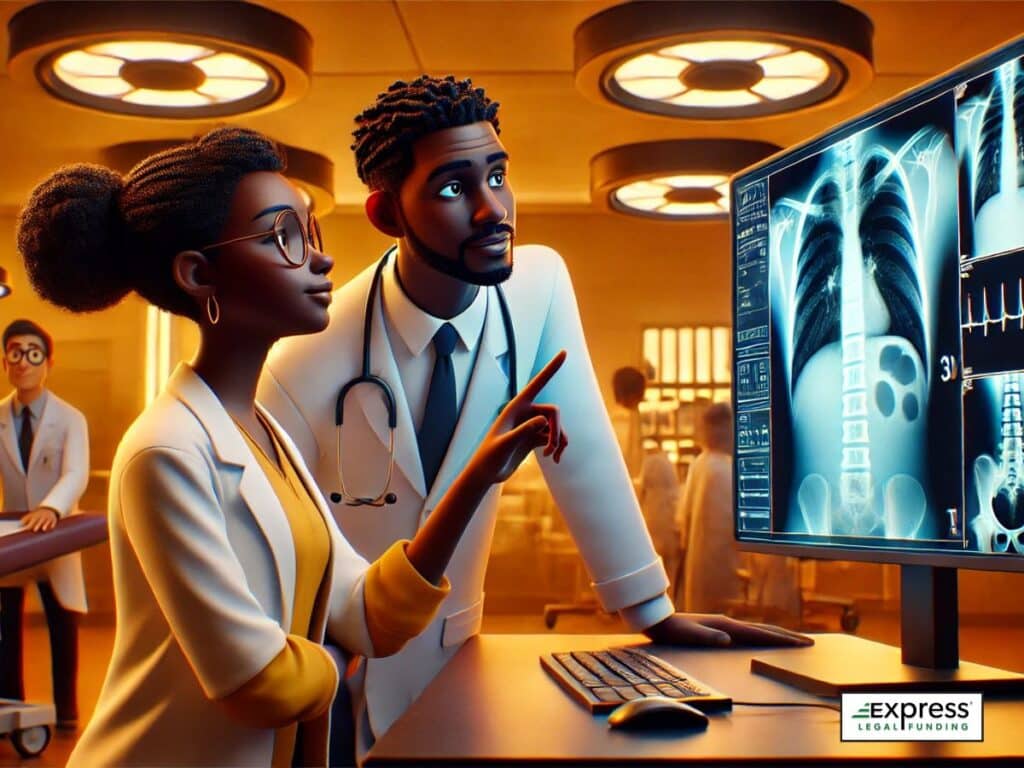
How Medical Records Establish Causation
- Emergency Room Reports: Provide an official medical record immediately after the accident, documenting initial symptoms.
- Doctor’s Diagnosis: Confirms that the injuries were consistent with the accident’s impact.
- X-rays, MRIs, and CT Scans: Offer objective proof that injuries did not exist before the crash.
- Specialist Evaluations: Chiropractors, orthopedic surgeons, and neurologists can rule out pre-existing conditions and attribute injuries to the accident.
2. Demonstrate the Severity of Your Injuries
Medical records provide evidence of the severity of injuries, which directly impacts the amount of compensation a victim can receive. Without comprehensive medical documentation, insurance companies may downplay the seriousness of injuries and offer lower settlements.
Key Medical Records That Prove Injury Severity
- Emergency Room Reports: Establish the immediate impact of the crash on the victim’s health.
- Imaging Tests (X-rays, MRIs, CT Scans): Provide concrete proof of internal injuries such as fractures, brain trauma, or spinal damage.
- Specialist and Physical Therapy Reports: Show the ongoing impact of injuries, including chronic pain and mobility issues.
- Surgical and Rehabilitation Plans: Indicate the necessity of future medical care, increasing potential compensation.
Relevant read: How to Document Injuries for a Strong Personal Injury Claim
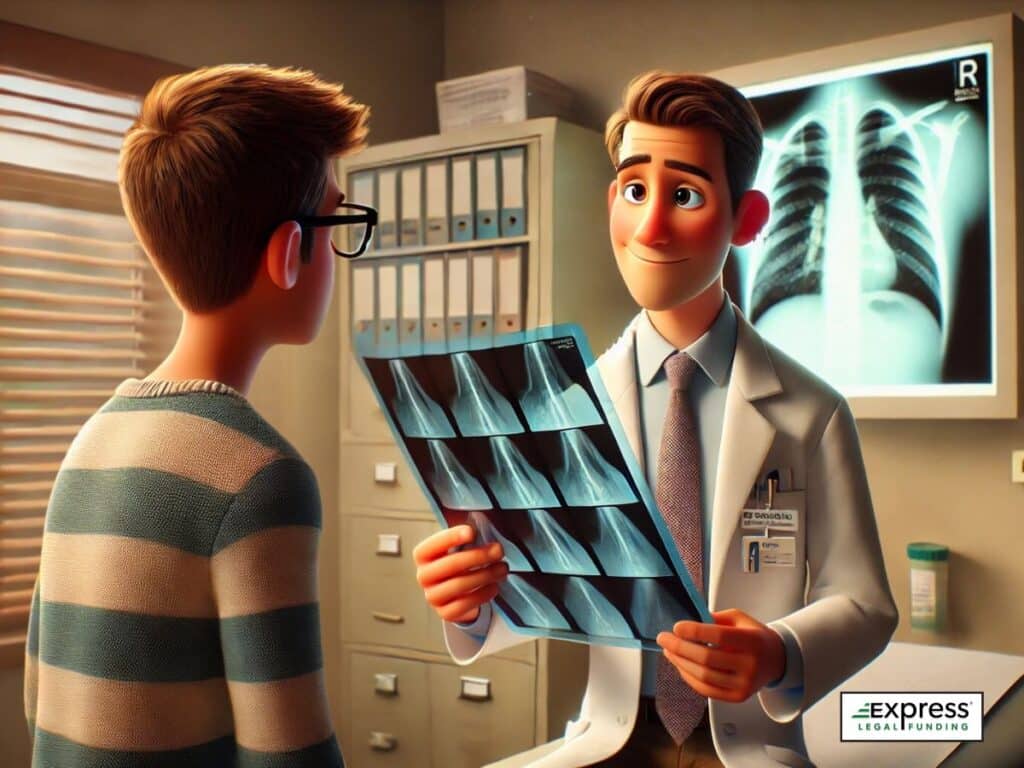
Example:
A car accident victim in Boston suffered a spinal injury but initially thought it was minor. Over time, chronic pain developed, leading to multiple specialist visits and therapy sessions. Because they documented ongoing symptoms and follow-up care, their final settlement increased by 60 percent compared to the insurance company’s initial offer.
Want to know what your case might be worth?
🚗 Try our free Car Accident Settlement Calculator and get an instant estimate.
3. Justify Your Medical Expenses
One of the largest components of a car accident settlement is medical expense reimbursement. However, insurance companies often challenge medical costs, arguing that certain treatments were unnecessary, excessive, or unrelated to the accident.
Medical Records That Justify Treatment Expenses
- Itemized Medical Bills: Provide a breakdown of all costs incurred.
- Prescription Records: Show ongoing treatment needs for pain management or rehabilitation.
- Physical Therapy and Rehabilitation Reports: Demonstrate the need for continued medical care.
- Surgical Reports: Justify major medical expenses and post-operative care.
Example:
A car accident victim in Texas required a cervical fusion after a head-on collision. The insurance company attempted to deny coverage, claiming the injury was degenerative and not caused by the accident. However, a specialist’s report confirming that the accident aggravated the condition helped secure full reimbursement for surgery and physical therapy rehabilitation costs.
4. Support Pain and Suffering Claims
In addition to medical bills, victims may be entitled to non-economic damages for pain, suffering, and emotional distress. However, proving pain and suffering is more challenging since these damages are subjective and do not appear on X-rays or scans.

How to Document Pain and Suffering
- Doctor’s Notes: Document patient complaints about chronic pain, mobility issues, and discomfort during treatment.
- Mental Health Records: Show diagnoses for PTSD, anxiety, or depression resulting from the accident.
- Pain Journals: Personal logs that track daily pain levels, physical limitations, and emotional struggles.
- Witness Statements: Family and friends can provide testimony about lifestyle changes and emotional impact.
Example:
A Massachusetts driver developed severe PTSD after a high-speed collision, leading to panic attacks and an inability to drive. The insurance company initially ignored their mental health claim. However, with a psychiatrist’s diagnosis and therapy records documenting emotional distress, the victim secured compensation for pain and suffering in addition to medical expenses.
5. Ensure Injury Threshold Eligibility for Filing a Claim
In no-fault insurance states like Florida, Massachusetts, and New York, accident victims must meet a minimum injury threshold before filing a personal injury claim against the at-fault driver. These laws prevent minor claims from clogging the court system but also make medical documentation essential for proving eligibility for torts.
Injury Thresholds typically include:
- A minimum dollar amount for medical expenses. For example, in Massachusetts, injury victims must incur at least $2,000 in medical costs for non-serious injuries to qualify for a claim under Massachusetts General Laws Chapter 231, Section 6D.
- Serious injuries such as permanent disability, significant scarring, or broken bones. For example, under Florida Statutes Section 627.737, car accident victims can only file a lawsuit if they meet the state’s serious injury threshold.
- Exceptions exist for wrongful death claims, allowing family members to seek damages.
Why Medical Documentation Matters for Injury Threshold Laws
- Without medical proof, insurance companies may argue the injury does not meet the legal threshold.
- Delays in treatment can make it harder to prove that injuries qualify for additional compensation.
- An attorney can use medical records to ensure the case meets legal standards and is not dismissed.
Example:
A Massachusetts car accident victim initially incurred $1,800 in medical expenses, below the state’s $2,000 threshold for filing a personal injury lawsuit. However, after follow-up care, additional tests pushed medical costs above $2,000, allowing the victim to pursue a claim for pain and suffering beyond PIP coverage.
Insurance Company Tactics and How to Counter Them

Insurance companies often try to reduce or deny settlements by questioning medical records. Below are common tactics they use and how to counter them effectively:
1. Claiming Your Injury Was Pre-Existing
- Tactic: The insurer argues that your injury existed before the accident, so they are not responsible for treatment costs.
- How to Counter: Obtain medical records showing no prior issues or get a doctor’s statement confirming the accident worsened a pre-existing condition.
2. Arguing Your Treatment Was Unnecessary or Excessive
- Tactic: The insurer disputes the need for certain treatments like physical therapy, MRIs, or chiropractic care.
- How to Counter: Request written justification from your doctor explaining why each treatment was medically necessary.
3. Disputing the Severity of Your Injuries
- Tactic: They claim your injuries are minor or should have healed faster than you report.
- How to Counter: Use diagnostic imaging (X-rays, MRIs) and pain journals to document the full extent of your injuries.
4. Using Delayed Treatment Against You
- Tactic: If you didn’t seek immediate medical care, they argue your injuries weren’t serious or weren’t caused by the accident.
- How to Counter: Have your doctor note that delayed symptoms are common, especially for whiplash and concussions.
5. Reducing Your Settlement Based on Comparative Negligence
- Tactic: The insurer blames you for part of the accident to lower your compensation.
- How to Counter: Provide police reports, medical records, and witness statements proving the other party’s liability.
By anticipating these tactics and maintaining thorough medical documentation, you strengthen your claim and improve your chances of securing full compensation.
Best Practices for Documenting Medical Treatments After a Car Accident
To maximize your settlement, follow these essential documentation steps:
1. Seek Medical Attention Immediately

Even if you do not feel injured right away, get evaluated by a doctor. Delayed treatment can weaken your claim, as insurers may argue the injury was not serious or was caused by something else.
2. Maintain a Chronological Record of Care
Insurance adjusters look for gaps in treatment as a way to reduce your claim’s value.
Gaps in medical treatment suggest:
- The injuries were not severe enough to require consistent treatment.
- You recovered faster than claimed.
- The injuries were caused by a different incident.
Example:
A Massachusetts car accident victim stopped physical therapy after a few sessions due to work obligations. When they later resumed treatment, the insurer offered a lower settlement, citing the gap in care as evidence of less severe injuries.
3. Document Every Medical Encounter
Keep detailed records of all:
- Doctor visits, including primary care and specialists
- Emergency room treatments
- Medications prescribed
- Therapy and rehabilitation plans
- Medical imaging and test results
Pro Tip: Request written statements from your doctors explaining how your injuries impact your daily life, work, and long-term health.
4. Include Emotional and Psychological Impacts
Many accident victims suffer from anxiety, post-traumatic stress disorder (PTSD), and depression, yet insurance companies often undervalue these damages.
Ensure mental health effects are recorded, such as:
- Anxiety or PTSD from the accident
- Sleep disturbances and nightmares
- Reduced quality of life and daily limitations
The Legal Advantage: How Strong Documentation Helps Attorneys Negotiate Higher Settlements

Attorneys present medical evidence in settlement negotiations by organizing it into a clear, compelling narrative that proves the severity of injuries, their direct connection to the accident, and the necessity of treatment. Some use a medical chronology report to outline the victim’s treatment timeline, ensuring no gaps that insurers could exploit.
Additionally, expert medical testimony from doctors and specialists reinforces the legitimacy of ongoing pain, long-term disabilities, and future medical needs.
They may also leverage pain journals and psychological evaluations to justify non-economic damages like emotional distress. By packaging this evidence effectively, lawyers counter insurance disputes and push for higher settlements.
How Lawyers Leverage Medical Documentation in Negotiations
A personal injury lawyer can use medical records as evidence to:
- Counter the insurance company’s disputes and demand fair compensation.
- Prove economic and non-economic damages, including pain and suffering.
Example:
Working with an experienced professional like Michael Kelly, a Boston car accident lawyer, can ensure that medical records are effectively utilized to strengthen the case and maximize settlements.
He has successfully helped accident victims leverage strong medical documentation to increase settlements by countering insurer disputes and proving long-term injury impacts.
Medical Documentation as Key Evidence in Court
If negotiations fail and a case goes to trial, medical documentation becomes invaluable in proving:
- The severity of injuries and long-term effects.
- The necessity of ongoing treatment.
- The impact on daily life, employment, and future earning capacity.
Judges and juries rely on medical records to determine appropriate compensation for both economic and non-economic damages.
Final Takeaway: Why Detailed Medical Documentation is Non-Negotiable
- Without solid medical documentation, you risk losing thousands in potential compensation.
- Thorough records strengthen your case against insurance companies that aim to minimize payouts.
- Working with an attorney helps ensure your medical evidence is used effectively to maximize settlements, often significantly higher than initial offers.
Need Legal Guidance? Protect Your Claim Today
If you’ve been injured in a car accident, don’t let insurance companies dictate the outcome of your settlement. Instead, take action to protect your rights and maximize your compensation:
- Consult an experienced car accident attorney who can ensure your medical records are properly documented and strategically presented.
- Strengthen your case with expert legal guidance to counter insurance tactics aimed at minimizing your payout.
- Act now—insurance companies are already working to reduce your claim. The sooner you seek legal help, the stronger your position.
FAQs: How Medical Records Affect Car Accident Settlements
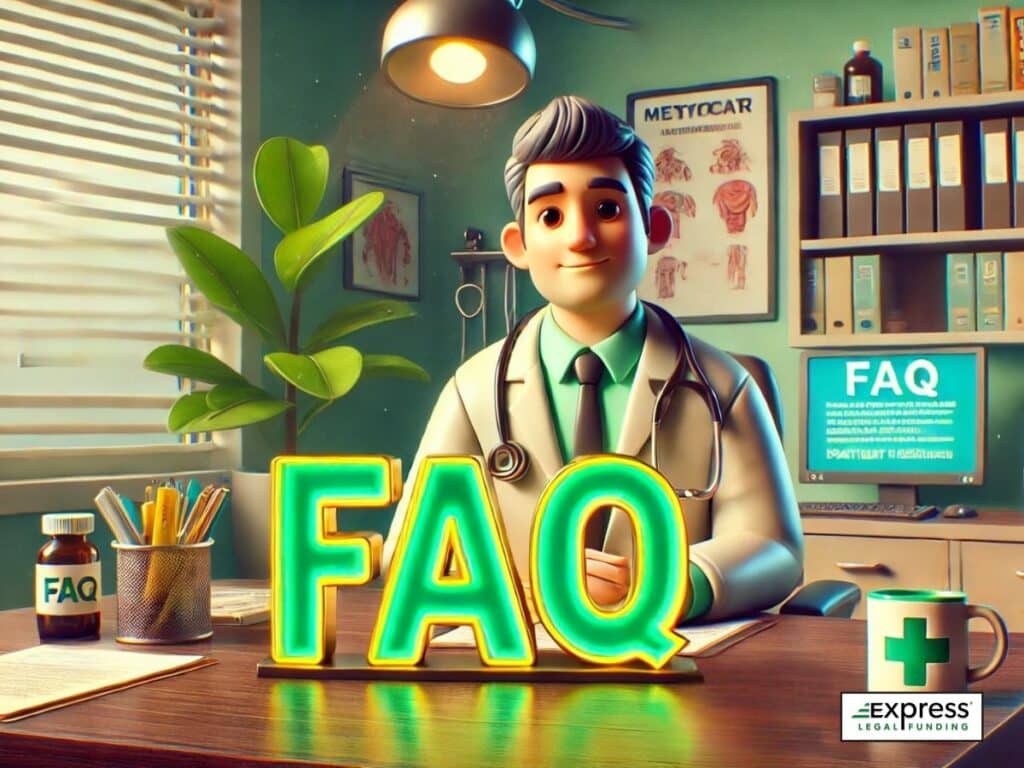
How Do Medical Records Impact the Settlement Value of a Car Accident Claim?
Medical records influence the settlement by proving the severity, causation, and necessity of treatment. Insurers use them to assess damages, including medical costs, lost wages, and pain and suffering.
Can an Insurance Company Deny My Claim If I Have Pre-Existing Conditions?
Insurance companies often try to attribute injuries to pre-existing conditions when negotiating a car accident settlement. However, medical records comparing your health before and after the accident can help prove that the crash worsened your condition.
What Medical Records Are Most Important for a Car Accident Settlement?
The type of medical records needed for a car accident settlement depends on the nature of the accident and the severity of the injuries. However, emergency room reports, doctor’s treatment plans, imaging tests (X-rays, MRIs), physical therapy records, and pain journals provide crucial evidence.
What Happens If My Doctor’s Notes Are Incomplete or Missing Key Details?
Incomplete medical records can undermine your claim and prolong the settlement process, giving insurers grounds to argue that your injuries are not well-documented. To prevent disputes, request comprehensive and detailed records from all treating physicians.
Can I Still File a Claim If I Didn’t See a Doctor Immediately After the Accident?
Yes, but delaying medical treatment can make it more challenging to prove that your injuries were caused by the accident. Insurance companies often argue that if an injury were serious, medical attention would have been sought immediately. They may use the delay as a reason to dispute or reduce your claim.
How to Strengthen Your Claim After a Delayed Medical Visit:
- Explain the delay to your doctor. If the symptoms did not appear right away, ensure your physician notes this in your medical records.
- Obtain a physician’s statement. A medical professional can help link your injuries to the accident, even if you did not seek immediate treatment.
- Document all symptoms and pain progression. Keep a record of when symptoms first appeared and how they have affected your daily activities.
Important note: Even if there was a delay, consistent and thorough medical documentation can help preserve the strength of your claim and maximize your settlement.
Can Gaps in Medical Treatment Hurt My Car Accident Case?
Yes, gaps in medical treatment can reduce your settlement. Insurers argue that missed treatments indicate minor injuries. To counter this, maintain consistent care and document all medical visits.
Example:
A car accident victim discontinued physical therapy for a month due to work obligations. When Arguing that the gap in care indicated a less severe injury, the insurance company offered a lower settlement offer.
Expert Insight: Skipping necessary medical treatment will hurt your injury settlement.
How Can I Prove Emotional Distress in a Car Accident Claim?
Mental health evaluations, therapy records, and pain journals documenting anxiety, PTSD, or depression can help substantiate claims for emotional distress compensation.
Can Chiropractor or Alternative Therapy Records Be Used in a Car Accident Case?
Yes, but insurers often challenge and devalue chiropractic therapy and non-traditional treatments, such as acupuncture for injury settlements. Having medical doctor referrals and consistent treatment documentation strengthens credibility.
How Express Legal Funding Helps Car Accident Victims
Car accident settlements can take months or even years, and during that time, many victims struggle to pay for medical expenses, rent, and daily costs. While insurance companies delay payouts, Express Legal Funding provides a solution—risk-free pre-settlement funding for car accident victims.
Read our guide: Can You Get a Loan on a Car Accident Settlement?

What is Pre-Settlement Funding?
Pre-settlement funding, sometimes referred to as a lawsuit cash advance, allows accident victims to receive a portion of their future settlement upfront to cover financial needs. Unlike a lawsuit loan, our funding is non-recourse, meaning you only repay if you win your case.
🟢 Apply for a Car Accident Loan today for fast financial relief!
Why Car Accident Victims Choose Express Legal Funding
- Pay Medical Bills: Continue receiving necessary treatment, such as steroid injections, while your case is ongoing.
- Cover Living Expenses: Stay on top of rent, groceries, and utility bills.
- Avoid Settling for Less: Don’t let financial stress force you into accepting a lowball settlement offer.
- Fast & Risk-Free: Get cash in as little as 24 hours with no credit checks or upfront fees.
Apply for Car Accident Pre-Settlement Funding Today
Insurance companies are already working to minimize your settlement—don’t let financial pressure force you into accepting less than you deserve for your injuries. With Express Legal Funding, you can stay financially stable while your attorney fights for a fair settlement.
📞 Call us toll-free today at (888) 232-9223 or Apply Online to get fast, risk-free legal funding for your car accident claim!

